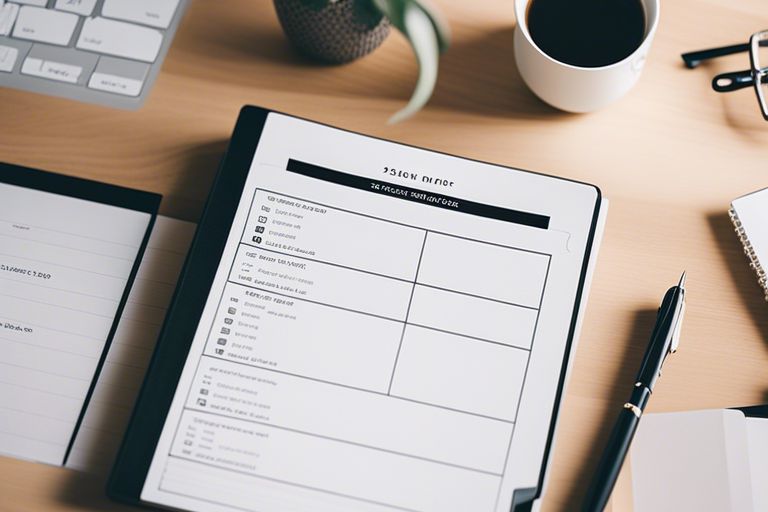Time management is a crucial skill that can have a significant impact on our personal and professional lives. The ability to control our time, prioritize tasks, and effectively manage our workload is essential for maintaining productivity and achieving success.
Good time management skills involve allocating time to tasks based on their urgency and importance. It requires the ability to prioritize and delegate tasks, ensuring that we work productively and efficiently. By managing our time effectively, we can maximize productivity and accomplish more in less time.
Having essential time management skills is not just about being good at time management. It goes beyond that, encompassing self-management, choice management, activity management, and value management. By mastering these skills, we can take control of our time and manage it better.
Effective time management enables us to distinguish between urgent and important tasks, allowing us to focus on what truly matters. It helps us allocate time to activities that align with our goals and values, ensuring that we make the most of our time each day.
So, is time management a competency? Absolutely! Developing and honing our time management skills can make a significant difference in how we live and work. By mastering the art of time management, we can improve our productivity, reduce stress, and achieve a better work-life balance.
Benefits of Planning at Night for Better Time Management
Planning ahead the night before has several benefits for better time management. By taking a few minutes before bed to organize your tasks for the next day, you can set yourself up for success and improve your overall productivity.
One of the key benefits of planning at night is that it helps reduce chaos. When you wake up with a clear idea of what needs to be done, you can start your day with a sense of purpose and direction. This clarity allows you to prioritize your tasks effectively and focus on the most important and productive tasks first.
Moreover, planning at night helps you avoid the decision dilemma that often arises in the morning. By making decisions ahead of time, you can save yourself from spending unnecessary time and mental energy on trivial choices. This not only saves time but also reduces stress and enables you to approach your day with a clear focus.
So, before you go to bed tonight, take a moment to plan and prioritize your tasks for tomorrow. You’ll wake up with a sense of purpose, reduced stress, and the ability to tackle your day with efficiency and effectiveness.

Reduce Chaos and Improve Productivity
Planning at night can help reduce chaos and improve your overall productivity. By knowing what needs to be done the next day, you can start your day with a clear focus and direction.
Avoid Decision Dilemma and Reduce Stress
By making decisions ahead of time, you can avoid the decision dilemma that often arises in the morning. This not only saves time but also reduces stress and allows you to approach your day with a clear focus.
Set Yourself Up for Success
Planning at night sets you up for success by helping you prioritize tasks effectively and focus on the most important and productive ones. It gives you a sense of purpose and allows you to make the most of your time and energy.
Supporting Behaviors for Effective Time Management
When it comes to effective time management, there are several supporting behaviors that can greatly contribute to your productivity and success. By incorporating these behaviors into your daily routine, you can maximize your focus, planning abilities, and overall efficiency in managing your time.
Focus: Maintaining focus on important tasks is crucial for effective time management. Minimize distractions by creating a dedicated workspace, turning off notifications, and staying committed to completing one task at a time. By eliminating external interruptions, you can enhance your concentration and accomplish more in less time.
Planning: Making a daily plan is essential for effective time management. Take a few moments each morning to prioritize your tasks and create a schedule for the day. This will help you stay organized, set realistic goals, and allocate your time efficiently. By having a clear plan in place, you can tackle your responsibilities with confidence and avoid last-minute stress.
Exercise and Breaks: Taking regular breaks and incorporating exercise into your routine can significantly impact your productivity. Physical activity boosts energy levels and improves focus, while breaks allow your mind to rest and recharge. Incorporating short bursts of exercise and intermittent breaks throughout your day will help you maintain mental clarity and work more efficiently.
Communication: Effective communication is a key supporting behavior for time management. Clearly conveying expectations, delegating tasks, and expressing your needs can help streamline processes and avoid misunderstandings. Understanding your audience’s communication preferences and using the right channels for different types of interactions can also save valuable time and enhance productivity.

Competency Skill Gaps Assessment for Time Management
Assessing competency skill gaps in time management is crucial for individuals and organizations seeking to improve productivity and efficiency. By identifying areas of improvement, individuals can focus on developing the necessary skills to enhance their time management abilities.
One of the key steps in the assessment process is identifying supporting behaviors that are essential for effective time management. These behaviors can include decision making, prioritization, and communication. By evaluating proficiency in these areas, individuals can gain insights into their skill gaps and determine the most appropriate areas for development.
Using a basic scale, individuals can rate their proficiency in each supporting behavior. This self-assessment can provide a starting point for understanding strengths and weaknesses in time management. It may also be beneficial to seek feedback from colleagues or supervisors to gain a more comprehensive perspective.
Once skill gaps have been identified, individuals can focus on targeted development activities. These activities can vary based on the specific skill gaps and personal preferences. Some potential activities may include attending time management workshops or webinars, practicing decision-making exercises, and seeking guidance from mentors or coaches.

Addressing skill gaps in time management is a continuous process that requires dedication and effort. However, by investing in personal development, individuals can improve their time management skills and become more effective and efficient in their work and personal lives.
Development Activities for Time Management
Improving time management skills requires engaging in various development activities. These activities focus on enhancing key areas such as decision making, minimizing distractions, journaling, utilizing available resources, and improving prioritization techniques.
1. Effective decision making: By practicing effective decision-making techniques, individuals can make quicker and more informed choices. This skill improves time management by reducing indecisiveness and ensuring tasks are prioritized appropriately.
2. Minimizing distractions: Creating a conducive work environment with minimal distractions is crucial for effective time management. This can include turning off notifications, setting dedicated work hours, or using productivity apps to stay focused.
3. Journaling: Keeping a time journal allows individuals to track how they allocate their time throughout the day. By analyzing time usage patterns, they can identify time-wasting activities and make necessary adjustments to improve efficiency.
4. Leveraging available resources: Utilizing tools, technologies, and resources can significantly enhance time management. This can include using productivity apps, project management software, or delegating tasks to trusted colleagues.
5. Improving prioritization techniques: Prioritization is key to effective time management. Individuals can learn techniques such as the Eisenhower Matrix or the ABC method to categorize tasks based on urgency and importance, enabling them to focus on high-priority tasks first.

FAQ
Q: Is time management a crucial competency?
A: Yes, time management is essential for both personal and professional success. It involves the ability to prioritize tasks, delegate when necessary, and build a system for efficient productivity.
Q: How can I delegate effectively to improve time management?
A: Delegating tasks to others can free up your time to focus on more important responsibilities. It is important to clearly communicate expectations and provide necessary resources for successful delegation.
Q: What is the significance of prioritization in time management?
A: Prioritization is crucial for effective time management as it allows you to focus on the most important tasks and allocate your time and resources accordingly.
Q: What are some techniques to build a system for better time management?
A: Building a system for time management involves creating schedules, utilizing tools such as calendars, and establishing routines to streamline your daily tasks.
Q: How can outsourcing help with time management?
A: Outsourcing certain tasks can save time and allow you to focus on responsibilities that require your expertise, ultimately improving overall time management.
Q: How can I improve my control of time and avoid procrastination?
A: By setting clear goals, prioritizing tasks, and using time management techniques such as scheduling, you can take control of your time and minimize procrastination.
Q: What is the difference between urgent and important tasks in time management?
A: Urgent tasks require immediate attention, while important tasks contribute to long-term goals. Understanding this distinction is critical for effective time management.
Q: What tools or methods can I use to manage my time more efficiently?
A: Utilizing tools such as Google Calendar, practicing calendar management, and learning to focus on one task at a time can significantly improve time management.
Q: How can I automate certain tasks to save time?
A: Automating repetitive or low-value tasks through technology or outsourcing can free up time for more critical responsibilities and improve overall time management.
Q: What soft skills are essential for successful time management?
A: Soft skills such as planning, multitasking, and effective communication play a vital role in managing time efficiently and achieving desired outcomes.
Conclusion
Time management is a vital competency that can greatly enhance productivity and efficiency in both personal and professional endeavors. By mastering the fundamental principles of time management, such as planning ahead and prioritizing tasks, individuals can make optimal use of their time and achieve more in their daily lives.
Developing effective time management skills is crucial for success and maintaining a healthy work-life balance. It involves not only managing time but also self-management, choice management, activity management, and value management. With time being a finite resource, it becomes all the more important to utilize it wisely.
By honing time management competencies, individuals can experience numerous benefits, including reduced stress, clear focus, and the ability to make informed decisions. Furthermore, incorporating supporting behaviors like maintaining focus, exercising, taking breaks, and practicing effective communication can significantly contribute to effective time management.
In conclusion, time management is not just an abstract concept but a practical skill that can be developed and refined. By investing time and effort into improving time management abilities, individuals can enhance their productivity, accomplish more, and lead a fulfilling and well-balanced life.








